APHLIS News
27 October 2023
Conflict and postharvest losses – the case of Ukraine
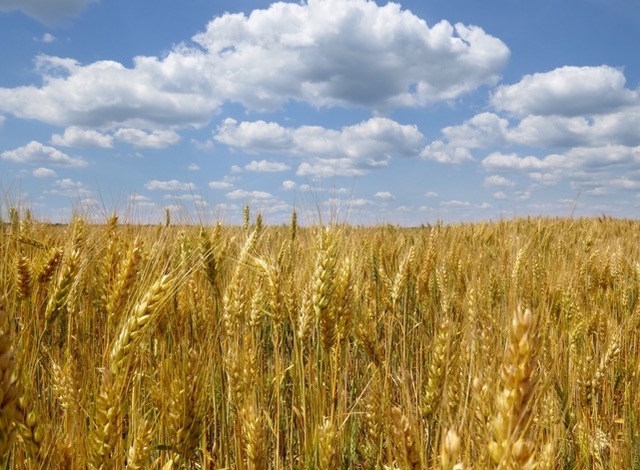
Eighteen months after the Russian invasion of Ukraine, the world faces a massive hunger crisis. The invasion has caused immense suffering for the Ukrainian people and has led to food, fuel, and fertilizer shortages and historically high food prices around the world. This has intensified the global food insecurity arising from the COVID-19 pandemic, climate shocks, and ongoing wars and conflicts. The World Food Programme (WFP) estimates – based on information from 79 of the countr...
Read more ›03 September 2022
Reducing postharvest losses to transform lives: the case of the sorghum value chain in Northern Ghana
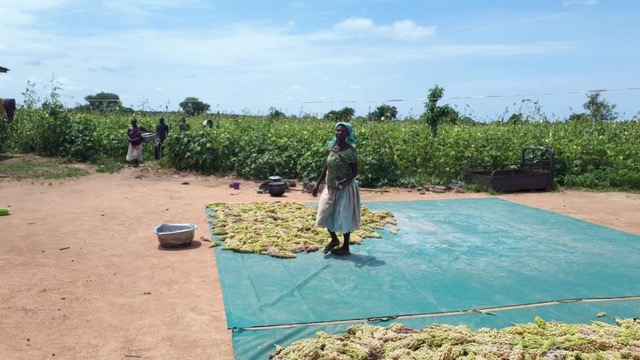
Sorghum is a critical crop in Ghana, both for food security and as a source of household income. Mainly grown by smallholders, it is an energy-rich staple that contains essential minerals such as potassium, phosphorus and magnesium. In Northern Ghana, brewing sorghum to produce a traditional beer (pito) is an important cottage industry. The crop’s industrial potential is also on the rise due to its frequent use by the formal brewing industry as a replacement for imported barley. Although...
Read more ›27 June 2022
Global agribusiness Olam Agri works with smallholders to measure and reduce losses at and after harvest in agri-supply chains
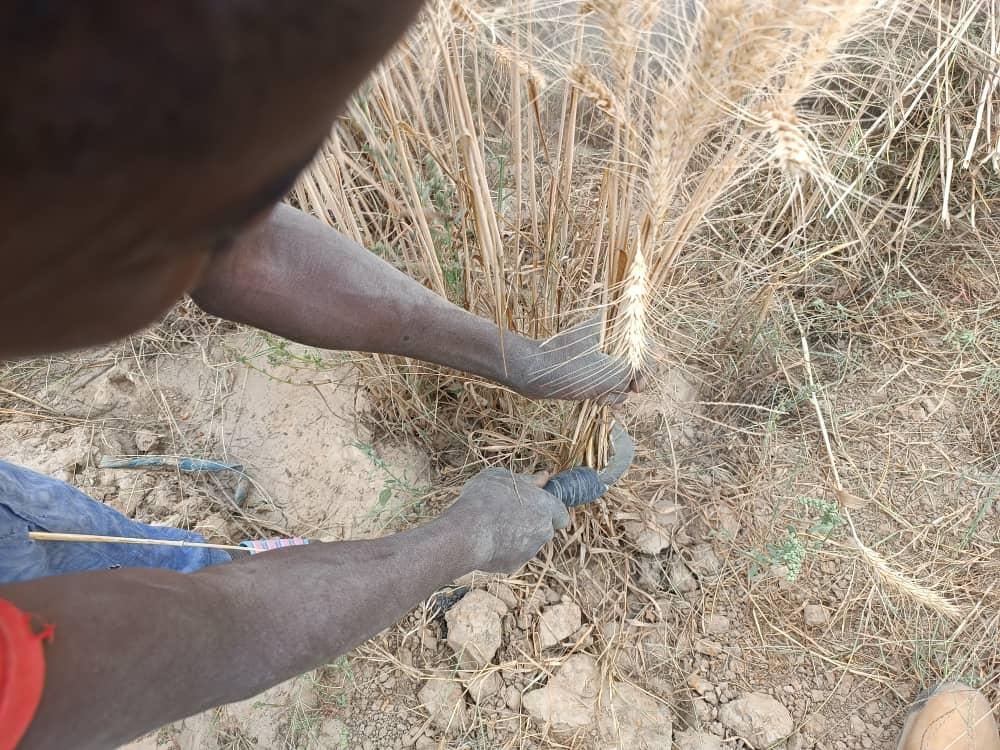
With a focus on high-growth emerging markets, Olam Agri, the food, feed and fibre global agri-business is determined to improve the sustainability of its supply chains. As a champion of Sustainable Development Goal 12.3, which calls for a reduction in food losses, Olam Agri is committed to reducing harvest and postharvest losses in its direct supply chains by 50 per cent by 2030. Wheat harvesting during the 2022 postharvest loss estimation in Hadejia, Nigeria [Photo credit: Sander Cleve...
Read more ›18 March 2022
Policies and strategies to reduce postharvest losses in sub-Saharan Africa: progress and challenges
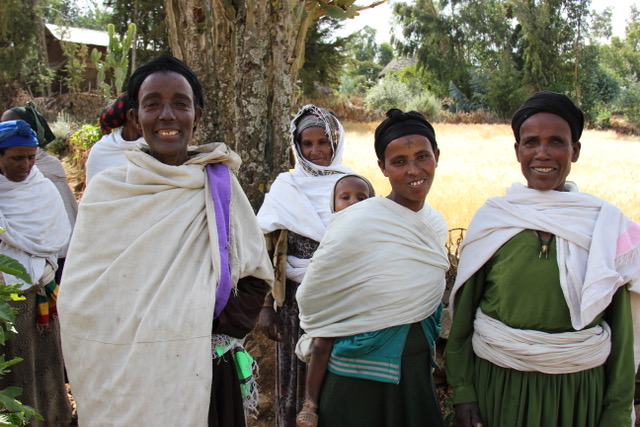
The need for more rigorous efforts to reduce postharvest losses is widely recognized. However, policy formulation and implementation are still very slow. Understanding and addressing the reasons behind the slow pace of progress – which include the lack of comprehensive loss data – is key to enabling countries to develop and implement effective postharvest loss policies. APHLIS is assisting countries to access the information that they need to meet their national and international po...
Read more ›03 November 2021
Tracking food losses in Africa
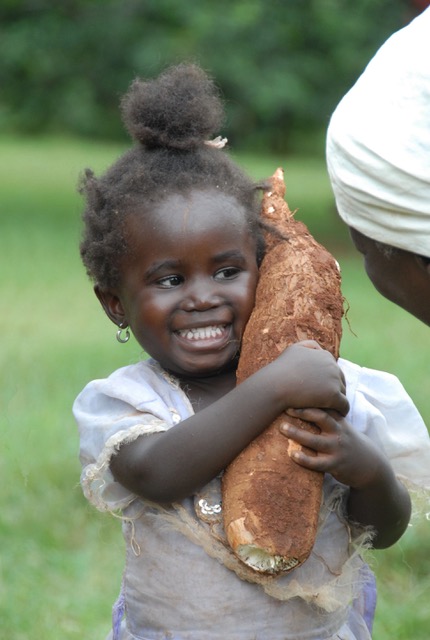
APHLIS is assisting four African countries to estimate the postharvest losses of major root and tuber food crops, a first step in developing more sustainable and efficient food systems. Working with partners in Nigeria, Togo, Tanzania and Uganda, the project is investigating cassava and sweetpotato, crops that are critical to the food security of millions but whose losses along the value chain are scarcely understood and often overlooked. Cassava is Africa’s second most important sta...
Read more ›08 September 2021
Side event at the AAPHCE: APHLIS - a tool to support postharvest loss reduction - Monday, 13 September 2021, 15:00-17:30 EAT
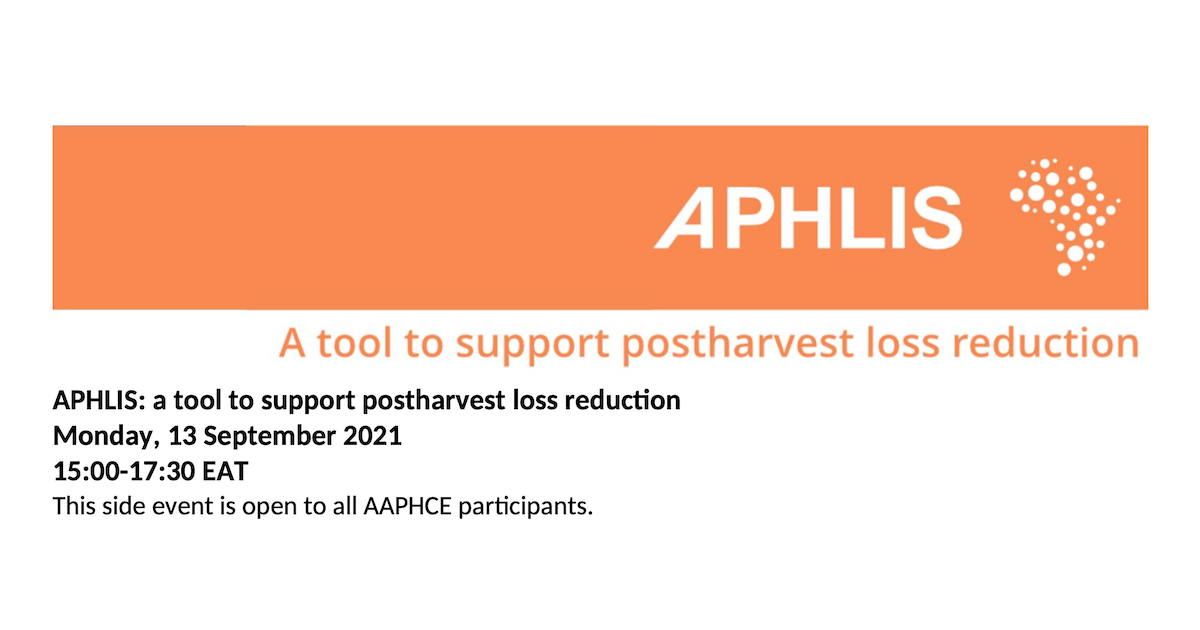
This side event is open to all AAPHCE participants. Introduction Substantial crop losses occur at various stages along the postharvest value chain. The African Union’s Malabo Declaration and the United Nations Sustainable Development Goals call on countries to significantly reduce postharvest losses by the end of the decade. Understanding the magnitude of postharvest loss, the points in the value chain where losses occur, and the causes and impacts of loss helps decision-makers...
Read more ›11 March 2021
Postharvest loss in the era of COVID-19
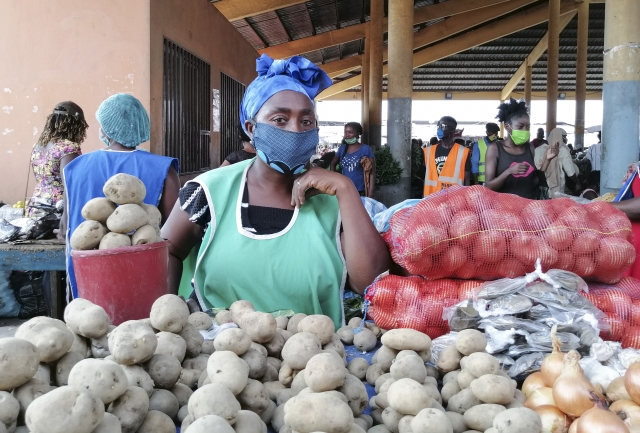
Exactly a year ago, the World Health Organization formally named COVID-19 a pandemic. Since then, the virus has swept across the world, leaving over 100 million cases and 2.5 million reported deaths in its wake. In almost every country, the pandemic has forced trade-offs between containing the virus and managing the economic and food security challenges arising from the containment measures. Agricultural and food markets have been hurt by restricting the movement of people involved in...
Read more ›09 April 2020
New APHLIS tool estimates the financial cost of postharvest losses
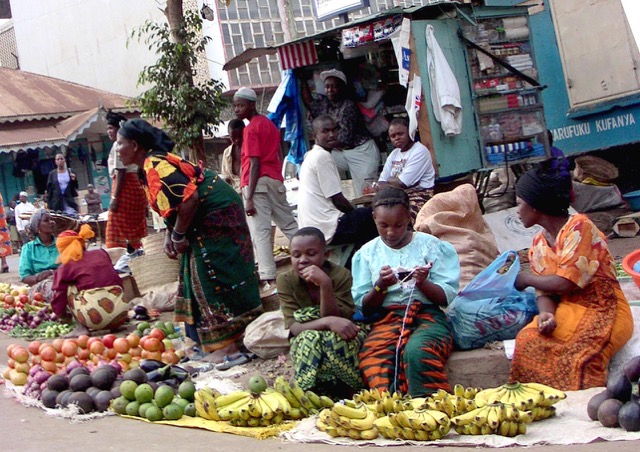
(financial values updated 29 July 2022 according to updated price data) Postharvest losses are widely understood to have serious financial consequences for farmers. Such losses waste not only food, but also the land, water, labour and other inputs used in agricultural production. The African Postharvest Losses Information System (APHLIS) has developed a new tool that enables users to uncover the financial value of crop postharvest losses in sub-Saharan African countries. Estimate...
Read more ›10 December 2019
APHLIS releases tool for measuring nutritional impacts of postharvest losses
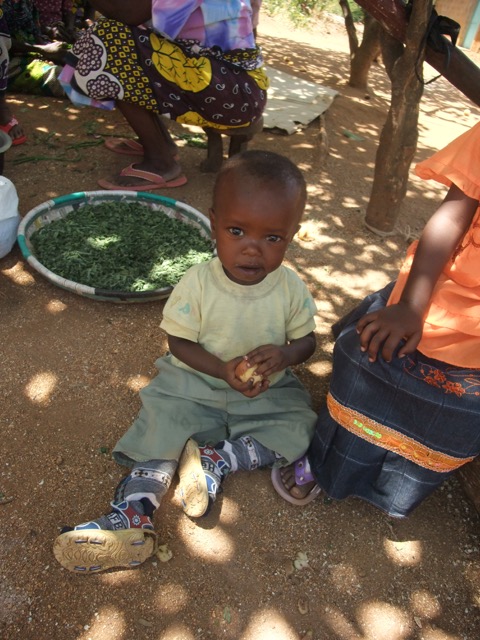
(updated on 20 March 2020 and 25 February 2021) Postharvest losses do not only squander food, and the land, water, labour and other inputs used to grow crops. A new APHLIS tool reveals the considerable impacts of such losses on the nutritional requirements of people. Postharvest losses can affect nutrient availability at various points along the food chain. When grains scatter or are overlooked during harvest, all of the nutrients they contain are lost as well. The same is tru...
Read more ›02 September 2019
Postharvest losses and the road to food security
Food loss includes the physical loss of food as well as quality losses that can diminish the economic value of a crop, or make it unsuitable for human consumption. Food waste, by contrast, refers to food that is discarded or used for non-food purposes, despite being safe and nutritious for humans to eat. The reasons for food losses vary by country. They include overproduction, premature harvesting, poor storage and processing facilities, inadequate market systems, overly high standards for the...
Read more ›07 August 2019
Understanding the role of gender in postharvest loss
One of the greatest challenges for agricultural research and development is to feed the world’s growing population – expected to reach 8.5 billion by 2030 – while crop yields are increasingly threatened by the changing climate. Most of the attention around this challenge focuses on improving production, yet reducing postharvest losses is an important way to increase food availability and improve farmer livelihoods without the need for additional productive resources. In additi...
Read more ›26 March 2019
New map series to warn of aflatoxin risks
APHLIS is producing a series of maps that provide early warning information on climate-based risks of aflatoxin contamination, a major threat to plant, animal and human health A powerful poison The map shows — for each province — the percentage of periods prior to harvest (over the years from 2004 to 2018), that crops were likely to be subject to aflatoxin risk due to heavy rainfall. (Image: APHLIS) Aflatoxins are poisons produced by moulds – mainly Aspergillus...
Read more ›06 March 2019
Using postharvest loss data to support food policy in sub-Saharan Africa: The role of APHLIS
APHLIS leads the effort to increase the use of scientific information to inform postharvest loss reduction policies at national and international levels. The Malabo Declaration commits African governments to cutting their postharvest losses in half by 2025. (Image: Pecold/ Shutterstock) In December 2018, APHLIS hosted a masterclass for scientists and decision-makers on the role that postharvest loss estimates can play to support policy-making in sub-Saharan Africa. The maste...
Read more ›25 February 2019
Climate change and postharvest loss
Stemming postharvest loss will be critical if we are to feed the world in the face of a changing climate. At the same time, climate change is creating conditions that could make postharvest loss an even greater challenge. Efforts to reduce postharvest loss are critical in the face of climate change. (Image: Piyaset / Shutterstock) One of the greatest tasks we face in the 21st century is to feed the growing human population sustainably, and to do so in the face of climate cha...
Read more ›06 September 2018
APHLIS welcomes ambassadors from 23 African nations
Postharvest loss experts from sub-Saharan Africa met in Rwanda in August to consider the challenges involved in collecting data on postharvest losses. Participants pledged their commitment to finding solutions, including by raising awareness about the harmful impacts of such losses among policy-makers, donors and agricultural researchers. Postharvest experts from sub-Saharan Africa met in Kigali to address the challenges of gathering and sharing high quality loss data. The Kig...
Read more ›27 March 2018
Bellagio Statement on Postharvest Management
The Bellagio Statement on Postharvest Management , released 26 March 2018, is a call to action to reduce postharvest losses across sub-Saharan Africa. It is the main outcome of a four day workshop, facilitated by Helvetas, during which twenty-two leading practitioners representing governments, research, academia, the private sector, NGOs and donors shared their experiences and developed a vision for improved postharvest management. APHLIS core team member, Dr Tanya Stathers, was one of the ex...
Read more ›04 October 2017
APHLIS contributes to tracking of Sustainable Development Goals
APHLIS+ lead Dr Bruno Tran (NRI) and core team member Prof Brighton Mvumi (University of Zimbabwe) attended an Expert Consultation on Sustainable Development Goal 12.3 "Measurement and action to meet the target on reducing food loss and food waste" in Rome during 28 th – 29 th September. The meeting was organised by FAO and attended by a cross selection of the world postharvest loss and food waste experts including WRI, IFPRI, UNEP, the World Bank, USDA, GIZ, SDC,...
Read more ›27 July 2017
Introducing the new APHLIS website
Welcome to the first in a series of releases to improve the accessibility of APHLIS data, and present new outputs being developed under APHLIS+ . This first release introduces our new website design and provides basic access to APHLIS loss estimates via the country- and crop-focussed datatables. Future releases will expand both the interfaces with which data can be accessed (e.g. maps and dashboards ), as well as the content provided (e.g. new crops, metrics and alerts). To receive update...
Read more ›27 July 2017
Improving postharvest practices in Rwanda
Agriculture is the backbone of Rwanda’s economy, accounting for 80% of employment, mostly on smallholder farms. Agriculture meets 90% of national food needs and generates more than 50% of the country’s export revenues. Following the devastation of the 1994 genocide, the government allocated significant resources to agricultural development, achieving large increases in production, increasing food security and reducing poverty from 57 to 45 percent. The fragmented nature of agric...
Read more ›27 July 2017
Estimating nutritional postharvest losses – the Nutri-P-Loss project
The amount of food lost or wasted after harvest adds up to 1.3 billion tonnes every year. These losses have a major impact on economic and food security, especially for people in the developing world. Now, a new project is helping us to understand the nutritional implications of postharvest losses for the first time. Methodologies and tools have been developed through APHLIS (the African Postharvest Losses Information System) that enable us to estimate weight losses along postharvest value...
Read more ›